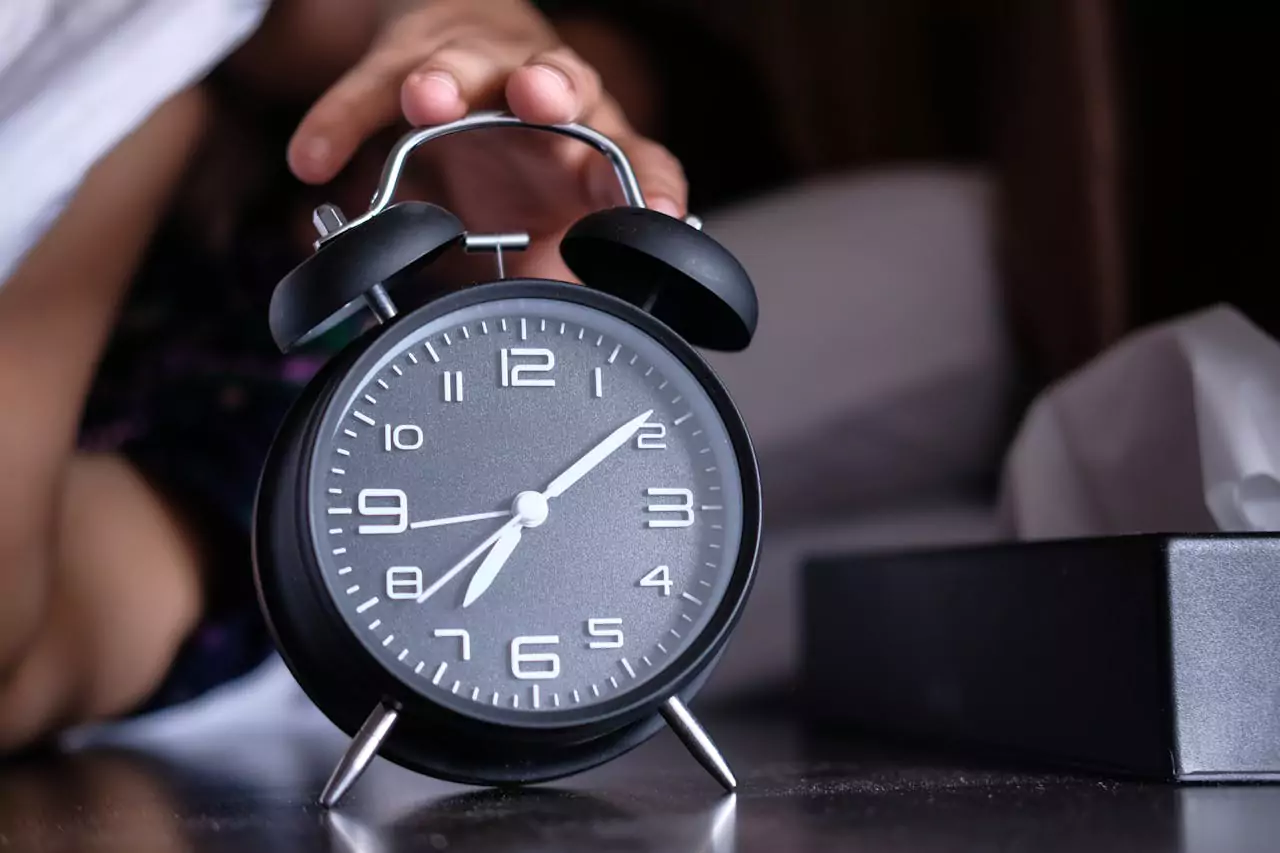What Is Alarm Anxiety and Why Does It Matter?
You know that feeling when you wake up in the middle of the night, heart pounding, and think, “Did I oversleep? What time is it?” That’s alarm anxiety—a sneaky little stress monster that messes with your sleep and leaves you dragging all day. It’s more common than you’d think, especially for people juggling strict schedules.
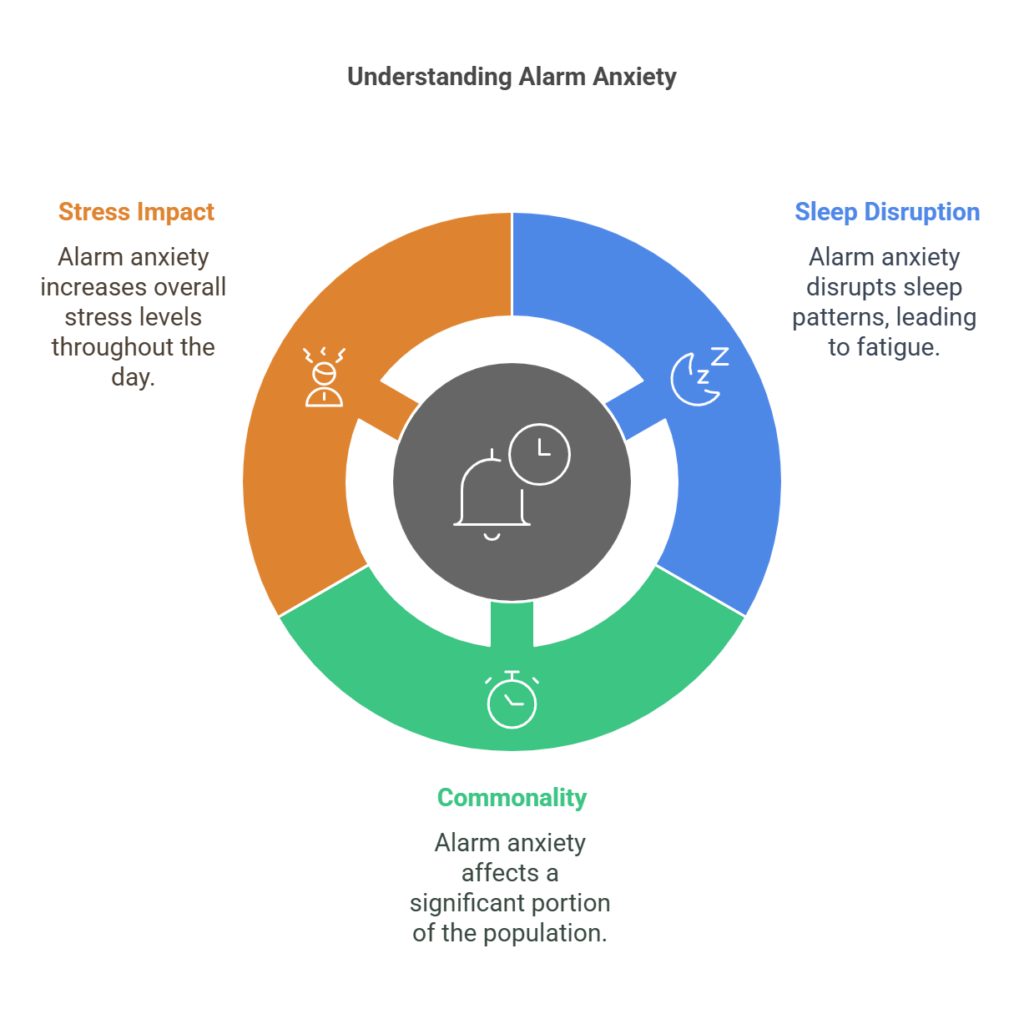
Here’s the deal: Alarm anxiety isn’t just about being annoyed by that obnoxious “beep-beep-beep.” It’s your brain in overdrive, stressing about waking up on time. A study by the Sleep Health Foundation found that nearly 30% of adults deal with this. If you’ve ever stared at your alarm clock like it’s your worst enemy, you’re not alone.
How Does Alarm Anxiety Affect Sleep?
Let’s get into the nitty-gritty. Your body’s designed to follow a natural sleep cycle, easing through stages of light and deep sleep. But alarms? They’re like someone dumping a bucket of ice water on your brain. That abrupt wake-up triggers your fight-or-flight response, leaving you groggy, cranky, and maybe even a little panicked.
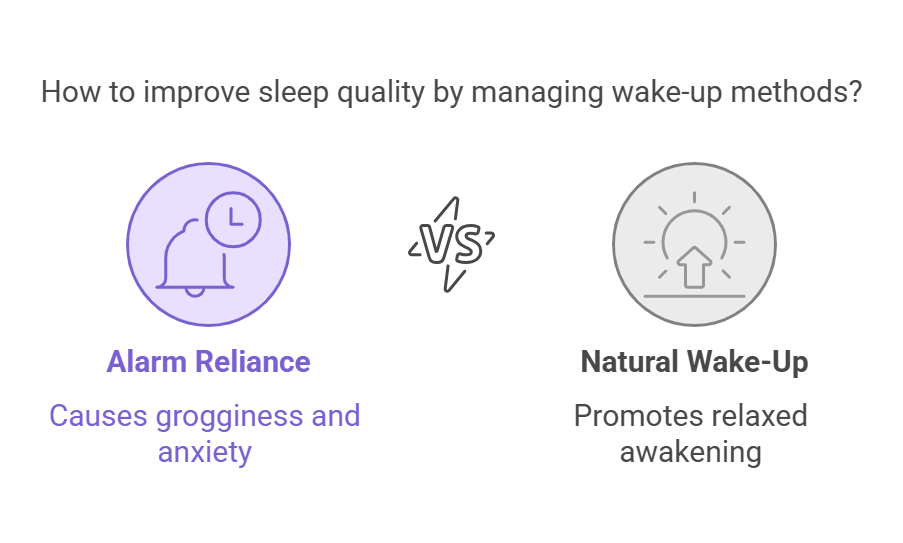
Here’s a fun fact (or not-so-fun, depending on your mornings): Research shows people who rely heavily on alarms often experience worse sleep. It’s because you’re so busy worrying about oversleeping that you can’t actually relax. Catch-22, right?
Why Is Alarm Anxiety Increasing?
Alarm anxiety is on the rise, and it’s not hard to see why. Our lives are go-go-go, with schedules that leave zero room for sleeping in.
Cultures that prioritize work—think Japan or South Korea—have it the worst.
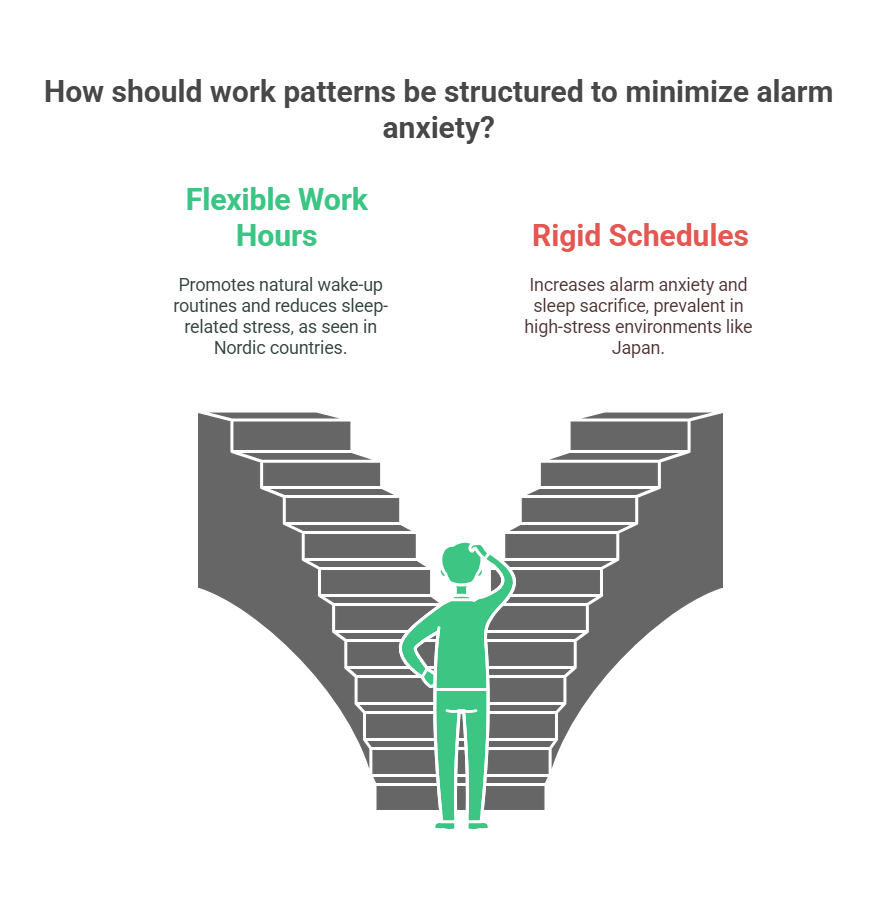
In Japan, they even have a term for literally working yourself to death (karoshi).But here’s the kicker: Countries like Denmark, where flexible work hours are common, report way less stress around alarms.
Coincidence? Probably not. When people are allowed to wake up naturally, they tend to be less frazzled—and more productive.
Practical Solutions for Alarm Anxiety
Okay, so what can you do about it? The good news is, you don’t need to toss your alarm clock out the window (though we’ve all been tempted). Here are some tips that actually work:
1. Give Your Alarm a Makeover
Why let your mornings start with a heart attack? Ditch those harsh, obnoxious alarms and switch to something soothing—birds chirping, soft melodies, or those fancy gradual wake-up lights. Seriously, they’re game-changers. A 2021 study from Sleep Medicine found that wake-up lights reduced stress and made mornings smoother for 78% of people. That’s a pretty good reason to swap out that old alarm tone.
2. Work With Your Body Clock
Your body wants to wake up naturally—no alarm needed. All it asks for is a little consistency. Going to bed and waking up at the same time every day can train your brain to do its thing without any drama. The National Sleep Foundation says adults need about 7–9 hours of sleep to function at their best, and irregular schedules can mess that up big time. Think of it like tuning a guitar—get the rhythm right, and everything just works.
3. Let Technology Be Your Friend
If you’ve ever thought, “There’s gotta be a better way to wake up,” there is. Smart alarms and sleep-tracking apps are like your personal sleep coaches. They monitor your cycles and wake you up during the lightest phase of sleep, so you don’t feel like you’re dragging a hundred-pound weight out of bed. Popular apps like Sleep Cycle or gadgets like Fitbit have glowing reviews for a reason—they work!
4. Make Your Bedroom a Sleep Haven
Your sleep environment matters more than you think. Keep your room dark, cool (around 65°F is perfect), and quiet. Blackout curtains are a godsend if outside lights are ruining your vibe. And, seriously, no screens an hour before bed. Science backs this up: a 2019 study in Chronobiology International found that cutting out artificial light improved sleep quality for 72% of participants.
5. Have a Backup Plan for Peace of Mind
Let’s face it, a lot of alarm anxiety comes from the what ifs. What if I oversleep? What if I miss that meeting? Here’s a hack: set a backup alarm. Make it something gentle that won’t startle you but gives you peace of mind. Knowing there’s a safety net can take the pressure off your main alarm, letting you actually relax.
6. Rethink the Hustle Mentality
Alarm anxiety often ties into that whole “rise and grind” culture, where being busy equals success. Dr. Emily Clarke, a sleep expert, says it best: “Alarm anxiety stems from the pressure to perform and be productive. But being well-rested should matter more than being on time all the time.” Preach, Dr. Clarke.
7. Move Your Body (at the Right Time)
Exercise is amazing for sleep, but timing matters. Morning or midday workouts help you wind down better at night. Evening workouts? Not so much—they can leave you too hyped to relax. Think of it like charging your phone—get your energy boost earlier so you’re not buzzing when it’s time to unplug.
8. Skip the Late-Night Coffee and Snacks
We’ve all done it—reached for that evening cup of coffee or raided the fridge at midnight. But here’s the thing: caffeine can stick around in your system for hours, and heavy snacks make your body work overtime when it should be winding down. Switch out coffee for herbal tea or stick to light bedtime snacks like bananas or yogurt. Trust me, you’ll sleep easier and feel way better in the morning.
9. Build a Chill Nighttime Routine
Think of bedtime as your wind-down zone. Your body needs a little downtime to shift gears from “go, go, go” to “time to snooze.” Try reading a book, doing some light stretches, or listening to calming music—whatever helps you relax. Research from Frontiers in Neuroscience shows mindfulness exercises before bed cut down nighttime stress for 68% of people. So light that lavender candle or cue up a guided meditation—your future self will thank you.
Expert Insights on Alarm Anxiety
Expert Insights on Alarm Anxiety
Let’s talk about alarm anxiety—because if you’ve ever spent a night tossing and turning, freaking out about waking up on time, you know how real it is. Dr. Vaishnavi Kundel, a sleep expert from the Icahn School of Medicine at Mount Sinai, gets it. She says this anxiety doesn’t just come out of nowhere—it’s a sign that your sleep habits might need a little TLC.
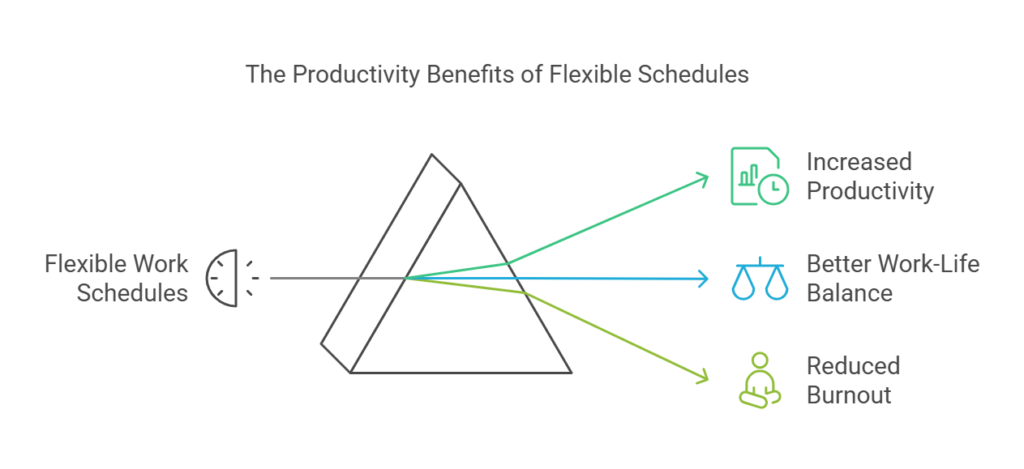
Dr. Kundel is all about keeping things simple and doable. “Establishing a consistent sleep routine and creating a cozy, sleep-friendly environment can make a huge difference,” she explains. And let’s be honest, we could all use a little more peace when it comes to our mornings.
One of her best tips? Think about your pre-bedtime habits. Are you scrolling through your phone or stressing about tomorrow? Instead, try winding down with a book, some light stretches, or a quick mindfulness exercise. “The way you prepare for bed sets the tone for your night and your morning,” Dr. Kundel adds.
By tweaking your sleep setup and routines, you can actually take control of your mornings—and wouldn’t it be nice to wake up feeling refreshed instead of frazzled? It’s all about giving your body and mind the chance to reset and recharge.
Want more tips from Dr. Kundel? Check out her advice here. Trust us, your mornings will thank you.
A Global Perspective on Sleep and Productivity
Here’s the crazy thing: People in countries with flexible schedules are often more productive than those grinding away under rigid ones. According to a 2020 OECD report, Nordic countries like Norway (where they practically invented work-life balance) lead in productivity. Meanwhile, alarm-reliant cultures tend to burn out faster.
It’s proof that waking up naturally might be the secret sauce to starting your day off right. Imagine feeling refreshed, not frazzled, when your eyes pop open in the morning. Sounds dreamy, doesn’t it?
Bottom Line: Let’s Rethink Mornings
Alarm anxiety is your brain’s way of telling you that something’s gotta give. Instead of battling with your alarm every morning, why not try working with your body? Gentle alarms, consistent routines, and a cozy sleep setup can make a world of difference.
Because let’s face it—waking up doesn’t have to feel like a mini heart attack. And wouldn’t it be nice to greet the day with a smile instead of a groan? Your mornings (and your sanity) will thank you.
Source List:
- Sleep Health Foundation Study
- Focus: Nearly 30% of adults experience alarm anxiety.
- Source: Insights into the link between anxiety and sleep.
- Link: Anxiety and Sleep – Sleep Foundation
- 2021 Study from Sleep Medicine
- Focus: Wake-up lights reduced stress and improved alertness for 78% of participants.
- Link: Hitting the Snooze Button May Actually Be Good for You
- National Sleep Foundation Recommendations
- Focus: Adults need 7–9 hours of sleep; irregular schedules disrupt natural rhythms.
- Link: Sleep Problems – NHS
- 2019 Study in Chronobiology International
- Focus: Reducing artificial light before bed improved sleep for 72% of participants.
- Link: Reducing Short-Wavelength Light Exposure
- Research from Frontiers in Neuroscience
- Focus: Mindfulness before bed reduced stress in 68% of participants.
- Link: Light Exposure and Cognitive Performance
- 2020 Study in Sleep Health
- Focus: Morning sunlight exposure improved sleep cycles for 80% of participants.
- Link: Daily Light Exposure and Sleep
- 2022 Study in Journal of Sleep Research
- Focus: Limiting screen time in bed improved sleep quality for 75% of participants.
- Link: Screen Use and Sleep Quality
- 2020 OECD Report
- Focus: Flexible schedules in Nordic countries led to higher productivity.
- Link: OECD Productivity Stats
- Recent Source: Dr. Vaishnavi Kundel
- Focus: Tips on managing alarm anxiety by creating better sleep habits.
- Link: Why Can’t I Sleep In Anymore?

